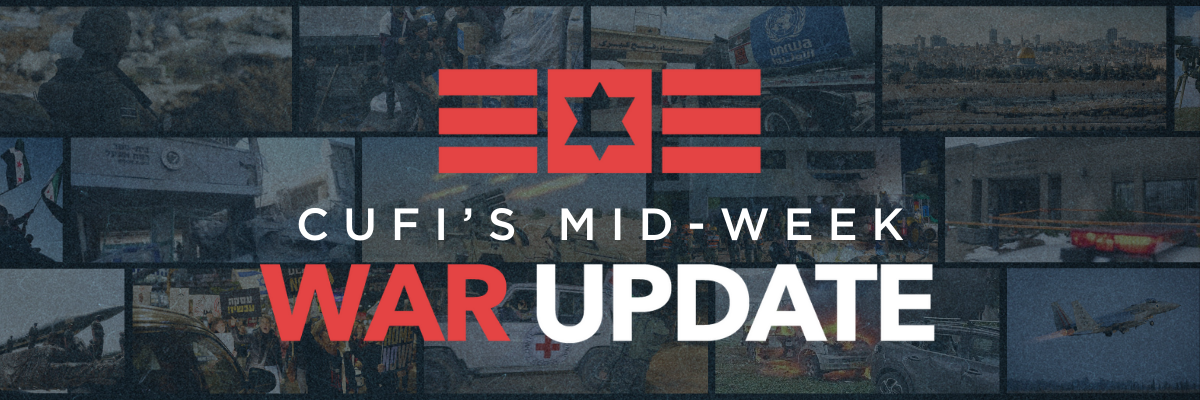Read the latest from this week:
Prime Minister Netanyahu arrived in the United States to meet with President Trump to discuss efforts to secure a Gaza ceasefire and a hostage release deal this week. President Trump stated on Tuesday that, “We’re going to be talking about… almost exclusively Gaza.”

After 642 days of the hostages in captivity, there is cautious optimism that their release could be secured following a potential ceasefire agreement. But, as in many discussions before, until a deal is signed and hostages are returned, nothing is taken for granted.
Following the second meeting between the two leaders on Wednesday, no statement was issued by the leaders.
________________________________________________________________
THE COST OF WAR

Israelis awoke to devastating news on Wednesday morning that five Israeli soldiers were killed and roadside bombs wounded 14 in Beit Hanoun in the northern Gaza Strip.
According to an IDF probe, the infantry soldiers were hit by three bombs that were remotely detonated one after another by Hamas operatives on the side of a road during ground operations in Beit Hanoun. The soldiers were operating on foot and were not inside a vehicle.
While Israel has seen success in its operations against Hamas, the attack was a reminder that Hamas cells are still fighting and planning terror against Israeli civilians and IDF soldiers.
The number of fallen IDF soldiers in the war against Hamas has reached 449, a grim reminder of the cost Israeli families are paying so they can be safe from terror and the hostages can return home.
________________________________________________________________
A QUEST FOR JUSTICE

On Tuesday, a new report titled “A Quest for Justice: October 7 and Beyond” was released. The report detailed the widespread sexual violence perpetrated by Gaza terrorists against Israelis during the massacre on October 7, 2023.
The report identified six sites where clear evidence of sexual violence were discovered, and cited therapists, first responders, first-hand witnesses, and victims, many of whom had never before spoken about their experiences. Only lawyer Amit Soussana publicly testified to the sexual violence she had survived.
The new report provided the first legal framework to prosecute Hamas terrorists for the use of sexual violence as a weapon of war during the October 7, 2023, massacre.
________________________________________________________________
The report released is a harrowing read. However, despite the unmistakable evidence, so-called “women’s rights activists” still minimize or dismiss the horrific violence suffered by Israeli women and girls on 10/7. This disturbing double standard has been evident in many aspects of the post-October 7th world, serving as a stark reminder that we must stand united with the people of Israel and share the truth.
